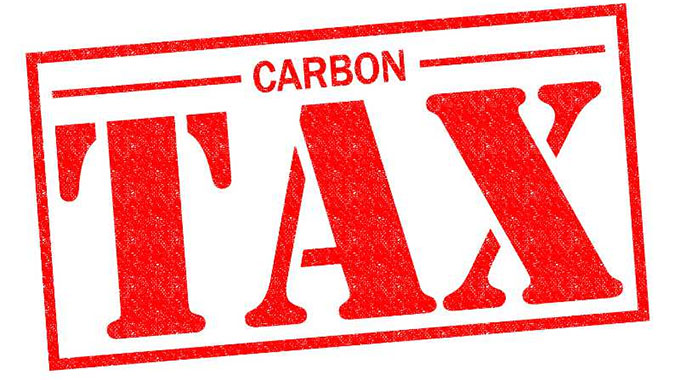Source: Govt to ring-fence carbon tax | The Herald
Enacy Mapakame-Business Reporter
THE Government is developing a legal framework to ring-fence revenue collected from carbon tax with a view to direct the funds towards climate-specific issues, according to a senior official.
The tax, a consistent performer among Zimbabwe’s tax heads, requires motorists to pay a certain fee for carbon emissions generated from fuel combustion.
But since 2001, when the tax came into force, it has not been clear whether the earnings have been distributed in a manner that supports low-carbon development.
Kudzi Ndidzano, deputy climate change director in the Ministry of Environment, Climate, Tourism and Hospitality Industry said such a scenario was about to change.
“We are working towards more direct access to the carbon tax, so that the money goes into projects that are climate related,” he told journalists during a Green Media Bootcamp in Harare last week.
Mr Ndidzano said the tax was being collected with the idea of helping the Government tackle issues around emissions from the transport and other carbon emitting industries.
However, it was not being used as originally intended because of complexities around the Government’s budgetary allocation system, which appears to pool different tax incomes into the Consolidated Revenue Fund for later distribution.
“We are moving towards trying to ring-fence the money,” said Mr Ndidzano. He explained that the Ministry will have to come up with “another legal instrument like a Climate Change Act”, which allows for the allocation of carbon tax revenue toward climate-specific projects
“We want to pool it [carbon tax] say into the national climate change fund as provided in the national Climate Policy,” he stated, adding that the Treasury was in the process of revising guidelines for state-funded programmes “to ensure that they all go through some kind of climate screening.,”
This is expected to help climate-proof every public project. Funds from the carbon tax can be utilised this way, he said.
According to the Zimbabwe Revenue Authority (Zimra) revenue performance for the first quarter ended March 31, 2022, carbon tax for the quarter amounted to $1,763 billion, which was 13 percent ahead of the targeted $1,55 billion.
For the 2021 comparable period, a total of $1,16 billion was collected.
According to the, carbon tax is payable in foreign currency at the rate of US$0,03 (3 cents) per litre of petroleum and diesel products or 5 percent of cost, insurance and freight value (as defined in the Customs and Excise Act [Chapter 23:02]), whichever is greater.
Experts say carbon tax should be spent for the purposes for which it is collected – delivering climate-sensitive interventions. Zimbabwe’s National Climate Policy aims to enable the country establish the legal structures to regulate businesses in climate-related matters, and enable them to reduce their greenhouse gases emissions.
The policy further focuses on adaptation with regard to rural communities and agriculture. Zimbabwe, a signatory to the Paris climate change accord, submitted a conditional 33 percent energy sector per capita greenhouse gas emission reduction target.
The submission was conditional on the means of implementation namely technology development and transfer, relevant training and financial support.
The southern Africa country needs about US$90 billion to meet its climate goals. Of this, US$55 billion is targeted at clean energy. Studies have shown that Zimbabwe is emitting an estimated 26 000 giga grammes of carbon dioxide, equivalent to 0,05 of the global emissions.
Newer Post
Afdis revenue jumps 81pc Older Post
Parliament probes minerals leakages 
COMMENTS